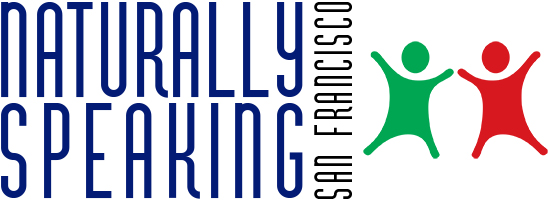SF Bay Area SLP, Annick Tumolo, provides treatment and evaluations for children who stutter
Speech is typically “fluent” and free of pauses, multiple repetitions and tension or struggle. It is delivered in a smooth manner. A marked number of pauses, repetitions of sounds, syllables, full words, and a high degree of fillers such as “um” and “uh”, on the other hand, characterize stuttering.
As children learn to use language it is not uncommon that they begin to demonstrate repetitions in their speech but for many children these behaviors may peak and then disappear as quickly as they appeared. For others, their stuttering may persist and require intervention. Stuttering often begins between the ages of 2 and 4. For those children who continue to stutter into early childhood and elementary school, their stuttering often progresses as their awareness of their own speech increases.
During an evaluation for stuttering, an SLP determines the presence, frequency and duration of core behaviors within a child or adult’s speech. These core behaviors refer to the type of stuttering the individual demonstrates such as repetitions, prolongations (mmmmmmore, sssssssoap) and/or blocks (inappropriate stoppage of sounds by the sudden closing of the vocal folds or sudden stopping of airflow within the vocal tract). Additionally, an SLP observes the presence of secondary behaviors. These are habitual behaviors the person who stutters demonstrates as a means not to stutter or to reduce stuttering. They may also be considered avoidance or escape behaviors including but not limited to looking away, eye blinking, twitching, abnormal body movements, and noticeable tension in the articulators or body. An interview is often conducted with caregivers and older children or adults who stutter to determine some possible triggers of stuttering or occasions that appear to make stuttering worse or better based on those individual’s perceptions.
The earlier a child is treated for stuttering the better as many studies show the greatest results in young children, typically those in preschool. However, treatment for stuttering can be beneficial at any age. There is no known cause for stuttering but there are many theories as to why stuttering may occur and what may effect severity.
For more information on stuttering here are some helpful resources:
http://www.stutteringhelp.org/
http://www.mnsu.edu/comdis/kuster/
A great film to watch based on King George VI and how he dealt with his stuttering is The King’s Speech. It is highly recommended!





